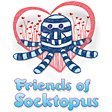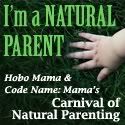on language
 Thursday, April 11, 2013 at 10:08AM
Thursday, April 11, 2013 at 10:08AM On Language -- the title of both a Julie Ruin song and a Noam Chomsky book -- was my email address for many years, beginning in, like, 1997, when my family had AOL and I was a teenager trying to figure out the world through punkrock and discussions of semantics. Language and its use (not to mention misuse) fascinate me, so the way my kids communicate is both an endless source of interest and worry of mine. Watching vocabularies develop, seeing conjugation begin to make sense, helping with the sounding-out of words, and noticing colloquialisms creep in are some of my favorite things about parenthood. I've never been concerned that my children won't be able to express themselves, given that their mother is one of the most direct people I know, but this morning while getting ready for preschool, George said he was nervous.
"What's making you nervous?" I asked.
"The boys make me be a bad guy, and I'm not a bad guy; I'm just George."
"Well, do you tell them you don't want to be the bad guy?" I asked.
"I say honk, but they don't listen!"
Now. George has a sort of punchline to everything, and it is the word 'honk.' It ends several songs in the way that a knee slap and jazz hands might, and it also serves to express confusion (...honk?), appreciation of something amusing (*satisfied smile* honk!), and punctuate human contact (*poke* HONK!). I'm not sure when or why it started, but it's at once a funny quirk, and not exactly my favorite thing he does.
"You can't say 'honk' and expect people to understand that you mean, 'I don't want to play like that' or 'please use gentle hands,'" I told him.
"But mama," he said, plaintively, "if I tell them 'gentle hands' they will feel bad, so I tell them 'honk' but I say it like this, with a sad face: 'ho-onk'."
I'd just like for you to imagine the sad, sad face of a three year old disappointed in his playmates' misunderstanding of the blow-softening "honk" meant to deter them from pretend-demonizing him. It was so unbearably cute and funny and sad, and awesome to see his understanding of social conventions developing. I understood; we've been working on saying excuse me rather than get out of my way! And I don't care for that rather than this food is yuck. I was heartened that he cared so much for his friends' feelings that he didn't want to upset them even though he felt they were kind of terrorizing him, but passivity is not something I ever expected would come out of my household.
I gave him some useful phrases like "I don't want to play like that" and "I don't like those touches; do you want a high five instead?" and "I'd rather play on the same team" but he was skeptical. Meanwhile, his sister threw across the room the shoes I'd picked out for her and staggered over to the shoe basket, retrieving her own choice. She thrust them at me, saying firmly, "SHEES." Shoes, these? Who knows, but it certainly wasn't unclear what she wanted.
These little people are so different: from me, but not me, and that's something I relearn on the daily. I think about my struggle to understand language -- to harness its power -- at seventeen, when Noam Chomsky and Kathleen Hanna felt like they were speaking to my very soul, and I want to do that for my kids. But I know they'll find their own versions of those angry songs and dry, plain reading. Until then, I guess there'll be a lot of honking.
 communication,
communication,  friendship,
friendship,  julie ruin,
julie ruin,  kathleen hanna,
kathleen hanna,  kids,
kids,  language,
language,  noam comsky,
noam comsky,  preschool,
preschool,  toddlers in
toddlers in  george
george 



